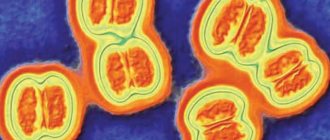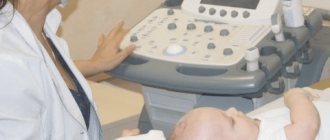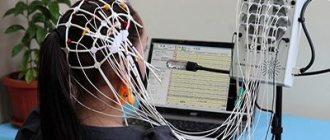The meningitis vaccine can save a person from this serious and dangerous disease. Meningitis 50 years ago was considered an incurable pathology. Today, forecasts depend on the timeliness of the patient seeking professional medical help, as well as on the qualifications of the doctors themselves. At the Yusupov Hospital, leading neurologists and infectious disease specialists in Russia are treating meningitis. In the hospital, at any convenient time, you can consult with doctors regarding all the pros and cons of vaccination.
The meningitis vaccine is actually capable of protecting the human body from a rapidly occurring dangerous inflammatory disease, which also entails serious complications. In the absence of adequate treatment, meningitis can take the life of a patient within 24 hours.
The main objective of vaccinations against meningitis is to develop a protective mechanism against the causative agents of the disease - meningococcus, pneumococcus and Haemophilus influenzae. In many developed countries, such as Great Britain, France, Germany, the USA, etc., vaccinations against meningitis are included in the national vaccination calendar.
In order to draw the public's attention to the dangers of meningitis, as well as to raise people's awareness regarding the characteristics of meningitis, its symptoms, routes of infection, treatment and prevention, World Meningitis Day was declared on April 24.
What are the vaccines against meningococcal disease called?
The goal of vaccination against meningococcal infection is to develop protection in the body against the causative agent of meningitis (meningococcus).
At the moment, several drugs are known that stimulate the production of antibodies to strains of bacteria that cause inflammation of the meninges. Below we will discuss what vaccinations against meningitis are called, and also describe the main vaccine preparations.
Meningococcal polysaccharide group A vaccine
It is produced in the form of a lyophilisate for administration under the skin as a solution. Meningococcal polysaccharide group A vaccine, after administration, promotes the rapid spread of specific antibodies. This allows the body to resist meningococci of serogroup “A” within a week.
Menactra ACWY
Made from polysaccharides of serogroups A, C, Y, W-135 and other substances. These are the main groups of bacteria that cause epidemics of meningitis.
Bacteria of serogroup A are highly virulent, and most often they are the cause of the disease.
Meningitis vaccination Menactra stimulates the production of specific antibodies to the specified serogroups of the causative agent.
Menveo ACWY
The vaccine against meningococcal infection is made on the basis of an oligosaccharide of serogroups C, W135, Y, A. The vaccination is given to babies from 2 months, adolescents, and adults. If there is a high risk of disease, it is allowed for use in pregnant women and young mothers who are breastfeeding. Before use, the meningococcal vaccine must be prepared in accordance with the instructions.
Vaccinations are done according to the following scheme:
- babies from 2 to 6 months are given 3 doses with an interval of at least 60 days, revaccination is done once a year;
- for children 6-12 months of age, a prophylactic dose is administered 2 times, the interval is 1.5-2 months, repeated vaccination a year after the last administration;
- Children from 1 year old, adults are vaccinated once, revaccination according to indications every 5 years.
Meningo A+S
It consists of meningococcal polysaccharides of serogroups C and A. The name of the vaccine against meningococcal infection indicates the content of only part of the serogroups of Neisseria meningitides polysaccharides. The vaccine does not protect the body from meningitis pathogens of other serogroups.
Protection is formed 7 days after administration of the solution. Immunity after vaccination is formed up to 4 years. Primary vaccination against meningitis is recommended after 2 years of age. Revaccination is prescribed no earlier than 2-4 years after vaccination.
Mencevax ACWY
Forms protection against the action of pathogens of all groups: A, C, W135, Y, thanks to antibodies in the blood.
Immunity to meningitis pathogens lasts for 5 years.
How great is the risk of getting sick?
Approximately 10-20% of people are carriers of meningoccal infection. Not all of them are sick - the carrier himself may be healthy. The bacteria live in the nasopharynx and are transmitted by airborne droplets. The sick person is contagious for about 3 weeks, of which 1 week is the incubation period, when the disease does not manifest itself in any way. You cannot get infected from animals or objects.
“We are riding the wave of a rise in meningococcal meningitis.”
The infectiousness of this infection is quite low. However, the incidence of meningococcal disease has a wave-like nature, and 2021 appears to have seen a surge in incidence. For example, V.S. Kovalev, a pediatrician at the Children's Research and Clinical Center for Infectious Diseases of the FMBA in St. Petersburg, in an interview given in February 2021 to the website miloserdie.ru, notes that such rises occur approximately once every 20-25 years, and now Russia is on the rise.
“A large number of people in Russia have already fallen ill with meningitis”
The Business Information Agency of Khakassia cites data from Rospotrebnadzor, according to which the epidemiological threshold for meningococcal infection was exceeded back in March 2021:
According to Rospotrebnadzor, in the first six months of this year, 549 Russian residents fell ill with meningococcal infection. This is 23% more than in the same period last year.
When do they do it?
In Russia, vaccination against meningococcal infection is not mandatory. However, they do it for free in some cases.
For children
Vaccination against meningococcal infection is mandatory for children in 80 countries around the world. Primary vaccination starts at the age of 2 months. Then the vaccine is given, depending on the risk of infection.
When children are injected with the vaccine in Russia:
- If an epidemic begins in a region – 20 children per 100,000 people.
- If a child with signs of meningitis comes to the group, then vaccinations are given to everyone who was in contact with him.
- If someone lives in an area with a high risk of disease, vaccination is mandatory.
- Children with immunodeficiency must be vaccinated.
The World Health Organization recommends that all children be vaccinated against meningitis.
For adults
Adults are less susceptible to this disease, but still, with an increased risk of infection, immunization is carried out. The following are cases in which this vaccine is given to adults:
- If there is a high risk of contracting meningitis if a person lives or visits certain regions.
- Persons who have contact with a patient with meningitis caused by bacteria of serogroups A, C, W135, Y.
When are anti-pneumococcal vaccinations against meningitis given to adults and children?
Many countries implement mandatory immunization of patients against pneumococcal infection. Since the beginning of the year, in the Russian Federation, such immunization has been included in the national vaccination calendar. Vaccination allows the body to receive the antigen in a safe minimum amount, which eliminates the possibility of a full-blown disease in the future.
In our country, vaccination is carried out using two types of serum: Pneumo-23 and Prevenar. Both of these drugs are characterized by the absence of side effects and high efficiency. The Prevenar vaccine can be administered to children over three months of age. Pneumo-23 is administered to children over 2 years of age.
Symptoms of meningitis
Children and adolescents are more susceptible to developing pathology. The most common symptoms of meningitis are:
- stiffness and pain in the neck muscles, especially when tilting the head;
- hyperthermia;
- headache;
- nausea, vomiting;
- sleep cycle disturbance;
- irritability, tearfulness;
- A rash and cough may occur.
Personal application experience
At the Sanare clinic, patients (children) aged 9 months and older were vaccinated with Menactra. The vaccine was well tolerated. There were no complaints in the post-vaccination period. (All patients at the clinic were called and interviewed by a nurse the next day).
The first to be vaccinated with the drug "Menactra", after its arrival at the clinic, were pediatricians, clinic staff, as well as their children (aged from 2 to 11 years). The drug was also well tolerated.
The nature of the inflammatory process in meningitis
Meningitis is classified according to several criteria. According to the nature of inflammation, they are purulent and serous.
Purulent
Pathogens: streptococci, staphylococci, pneumococci and others. Meningococcus enters the brain through the bloodstream. This is a dangerous type of disease, as the risk of death is high. When the first symptoms appear, urgent treatment with antibiotics is necessary. Features include the release of pus and the development of cell necrosis.
Serous
Occurs in epidemic outbreaks. The peculiarity is the release of serous exudate. It consists of a small number of leukocytes. How a secondary infection develops after influenza, mumps, and fungal diseases. The prognosis is favorable.
Possible reactions and complications
The pediatrician will tell you in detail how each vaccination is tolerated, what side effects are possible, and what parents should do. The most common occurrence of fever is after vaccination. This is a completely acceptable reaction, since a foreign substance is introduced into the body, the production of antibodies is necessary. Usually the fever is low and goes away in 2-3 days.
Possible consequences and complications are rare, as the drugs are well tolerated. They include allergic reactions, severe redness at the injection site, severe weakness for two days.
Contraindications
There are few contraindications to the administration of meningococcal vaccine:
- Acute infectious diseases.
- Allergy to the components of the drug.
- Exacerbation of chronic diseases.
To exclude all contraindications, before vaccination you must consult a pediatrician or therapist. The specialist will carefully analyze the vaccination record, study the patient’s medical history and health status. If necessary, additional tests will be prescribed.
Who is it recommended for?
There are a number of factors in which meningococcal vaccination is indicated. Among them:
- congenital form of asplenia;
- absence of spleen;
- liquorrhea – a process characterized by the leakage of cerebrospinal fluid (CSF) from the nose and ears;
- cochlear implantation – implantation of an electronic device that improves the patient’s hearing.
If a child is at risk, then vaccination is performed from two years of age. In the United States, this vaccination is included in the group of mandatory ones. The population of people who are required to be vaccinated includes residents of African countries.
Advantages of vaccination at the SM-Doctor clinic
The SM-Doctor clinic invites young patients to be vaccinated against meningococcus. We guarantee:
- thorough examination by a pediatrician before vaccination;
- safe modern vaccines;
- flawless execution of the manipulation;
- minimal waiting time for an appointment thanks to pre-registration;
Meningococcal infection is one of the most terrible and dangerous diseases.
Timely vaccination will protect your baby. Sign up for the SM-Doctor clinic and be safe. You can make an appointment or ask questions around the clock by calling +7 (495) 292-59-86
RELEASE FORM
Appearance: Solution for intramuscular administration 0.5 ml/dose.
1 dose (0.5 ml) of the drug in bottles made of transparent borosilicate glass (type 1) with a capacity of 3 ml, which are sealed with a stopper made from a mixture of chlorobutyl (latex-free) and synthetic polyisoprene, and rolled up with an aluminum cap equipped with a tear-off plastic lid "flip-off" type.
1 or 5 bottles along with instructions for medical use in a cardboard pack.
INTERACTION WITH OTHER MEDICINES
Menactra vaccine was used simultaneously with a polysaccharide vaccine for the prevention of typhoid fever and with an adsorbed vaccine containing tetanus and diphtheria toxoids intended for use in adults (Td), in persons aged 18-55 years and 11-17 years, respectively.
In children younger than 2 years of age, Menactra was given with one or more of the following vaccines: pneumococcal conjugate vaccine (PCV), measles, mumps, rubella vaccine, varicella vaccine, or hepatitis A vaccine.
There are no data to evaluate the safety and immunogenicity of the Menactra vaccine when used together at the age of 18 months with DPT-containing vaccines.
Pneumococcal antibody titers against certain serotypes contained in the 7-valent pneumococcal conjugate vaccine (PCV7) were reduced after coadministration of Menactra and PCV7.
The BCG vaccine should not be used simultaneously with the Menactra vaccine. Vaccines must always be administered to different parts of the body, using separate syringes for each of them.










